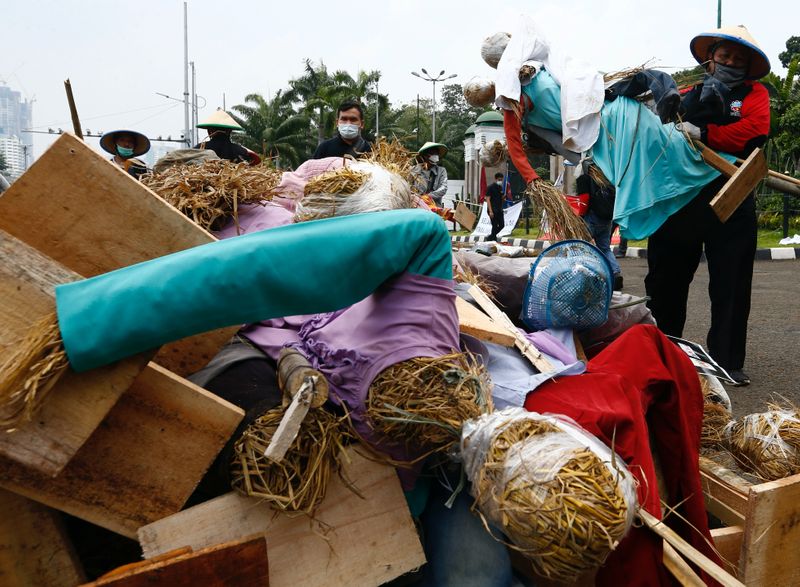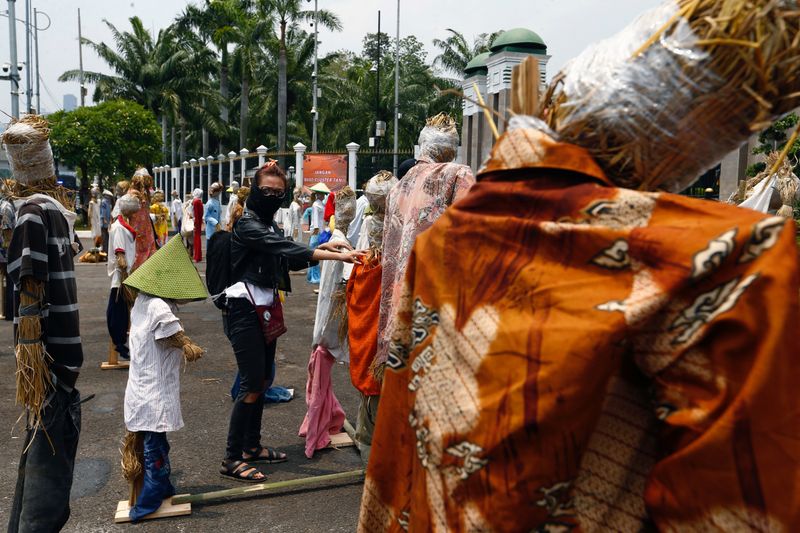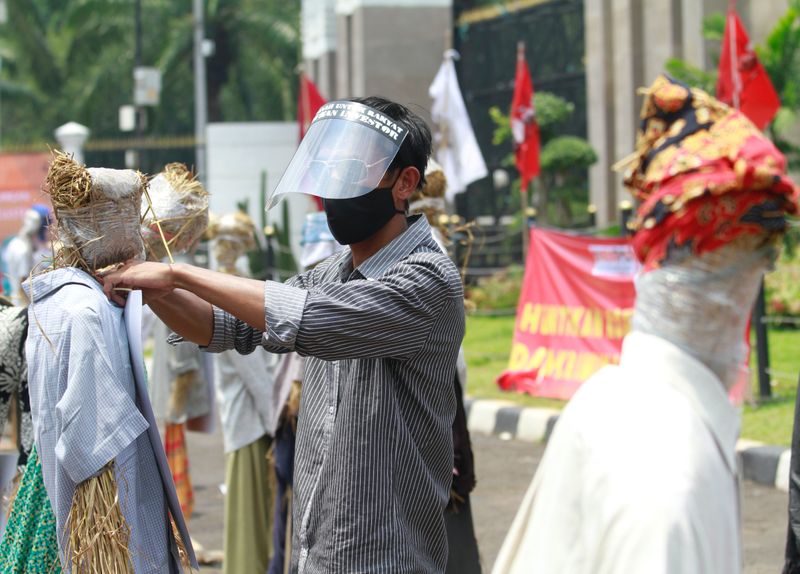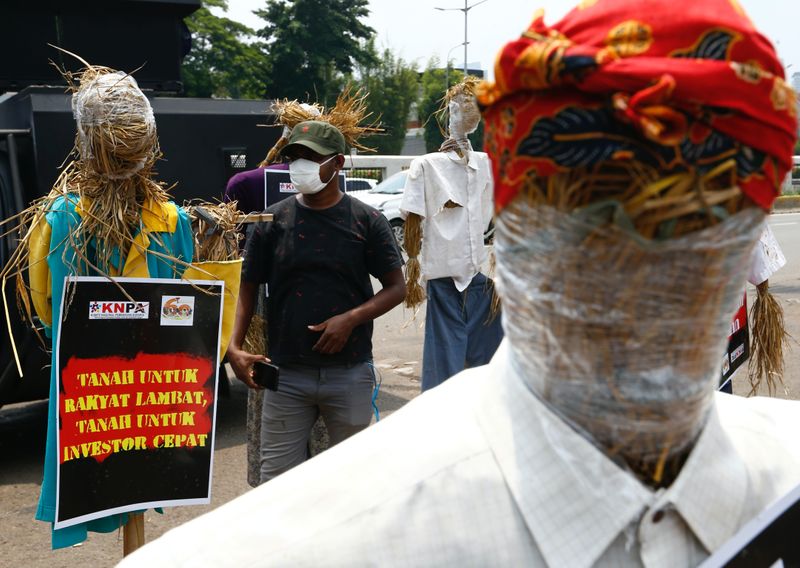JAKARTA (Reuters) – Indonesian activists and workers held rallies across the country on Thursday to protest against President Joko Widodo’s flagship Job Creation bill, as parliament moves closer to wrapping up debate on a bill that critics say is too pro-business.
However, the size of the rally in Jakarta was far smaller than organisers had planned, with only a few dozen attending the protest outside parliament amid coronavirus restrictions.
The president, whose coalition controls 74% of parliamentary seats, has asked lawmakers to finish deliberations by this month or early October.
The so-called “omnibus” bill aims to revise over 70 laws to improve the investment climate in a single piece of legislation.
But it has been attacked by unions because it aims to cut severance benefits and revise rules on outsourcing, among other proposals. Meanwhile, green groups say it could lead to ecological disasters by relaxing requirements for environmental studies.
Government officials have said current labour rules are too rigid and environmental rules would only be streamlined, while highlighting the urgency of fixing regulations to attract investment and create jobs for two million Indonesians entering the job market every year.
Ilhamsyah of the Confederation of Indonesian Workers Alliance, one of 290 non-governmental groups backing protests, said rallies were underway in dozens of places, including one attended by 3,000 in the industrial town of Karawang, West Java.
Reuters was unable to immediately verify this.
But local media reported about 200 workers demonstrated against the bill in Medan, North Sumatra, while hundreds rallied in the country’s second-biggest city of Surabaya in East Java.
Activists had sought a permit for 30,000 people to gather outside Jakarta’s parliament building, but Jakarta police had only allowed around 20 people due to the city’s recently reinstated virus containment measures, Ilhamsyah said.
A Jakarta police spokesman did not respond to a request for comment.
“We will hold more rallies to put up the maximum resistance,” Ilhamsyah said by telephone.
(Reporting by Maikel Jefriando, Tabita Diela and Ajeng Dinar Ulfiana; Writing by Gayatri Suroyo; Editing by Ed Davies)


























